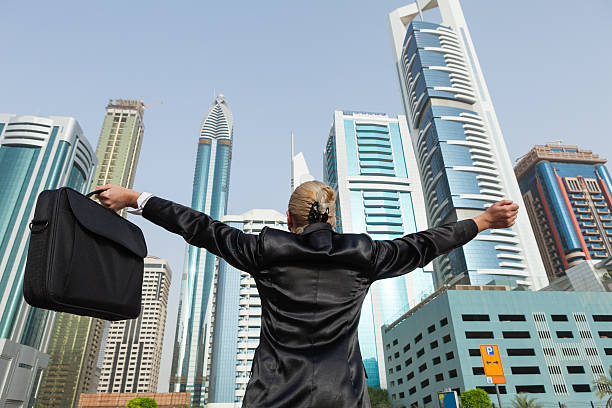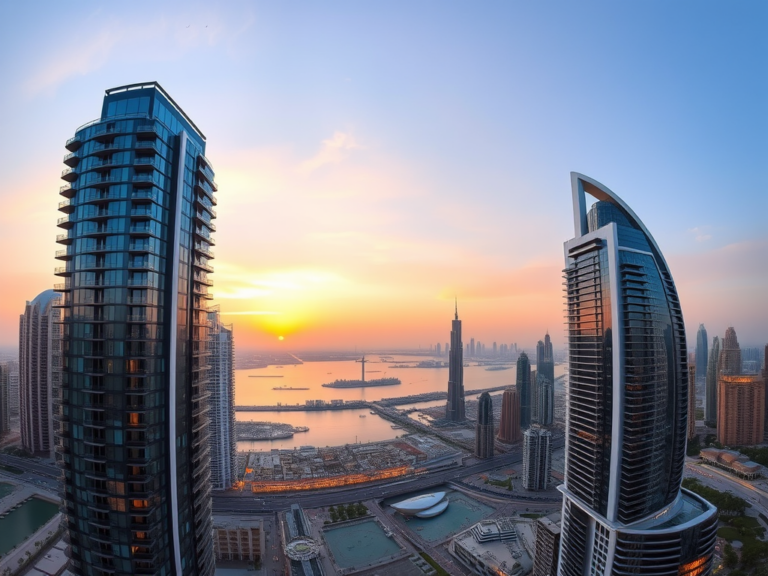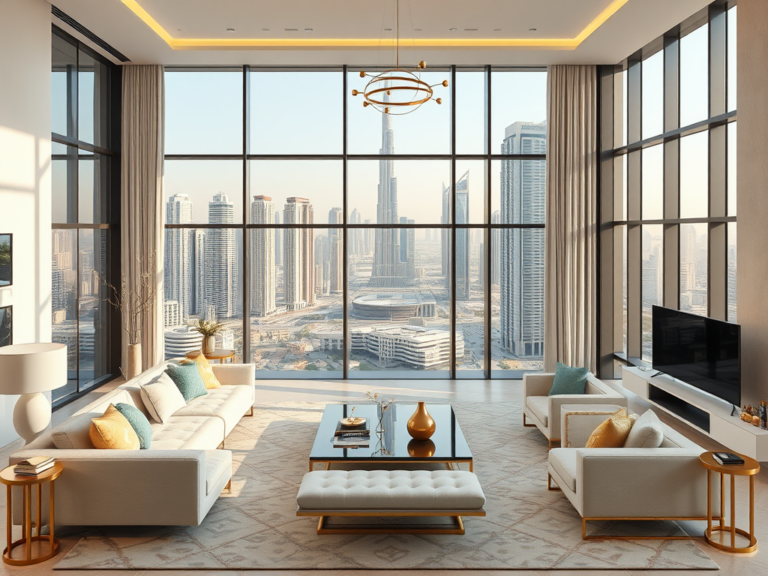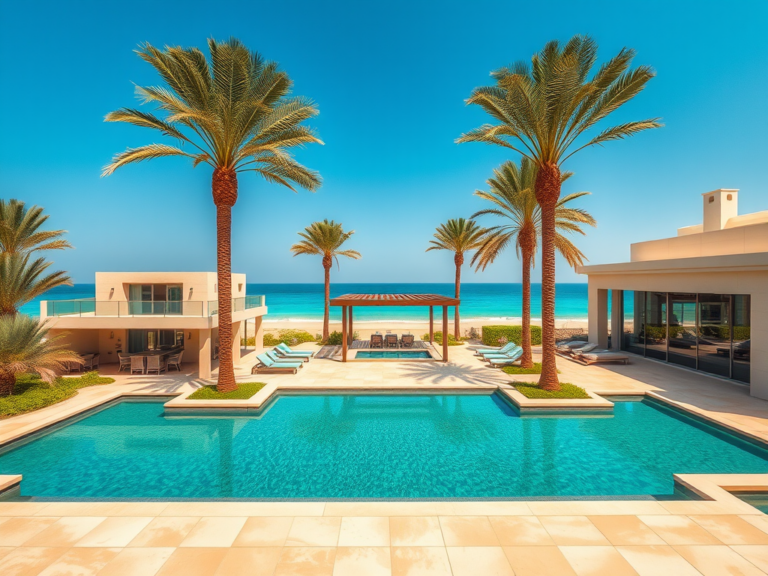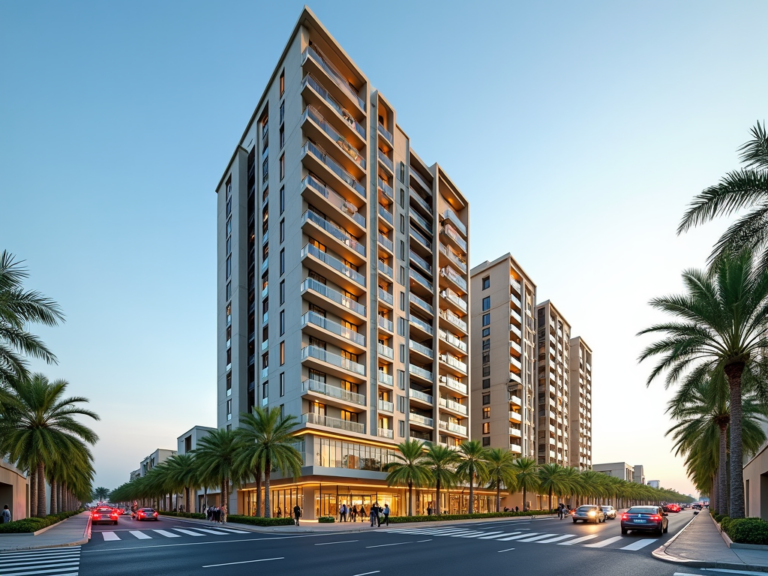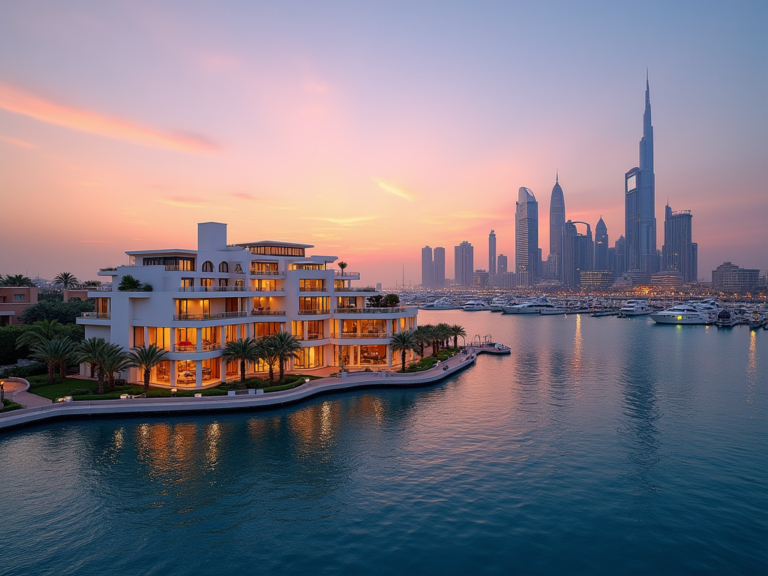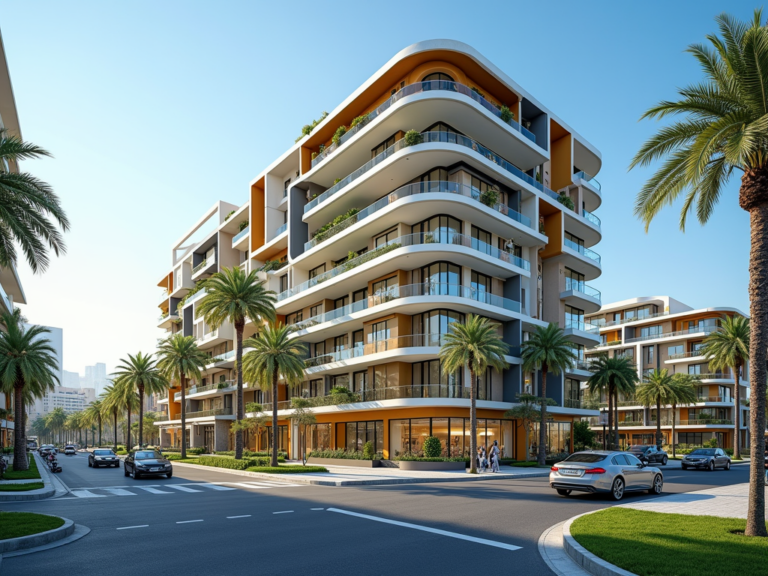Dubai, a glittering oasis in the desert, has stormed into prominence with its extravagant real estate market. For anyone seriously contemplating buying a house in Dubai, it’s essential to thoroughly investigate buying property in Dubai pros and cons. Despite its lure, buying property in Dubai may not be the golden ticket it initially seems with several potential drawbacks.
An Overview of the Real Estate Market in Dubai
Renowned globally for luxury and grandeur, the real estate market in Dubai boasts a range of properties from stunning high-rise apartments to sprawling villaces. Yet, beneath this sparkling surface, there are multiple challenges that a potential buyer may face.
The High Cost of Real Estate
When pondering the question, ‘Can I buy property in Dubai?’, one must consider the underlying cost factors associated with it.
- Property Prices: The exorbitant property costs in Dubai discourage many potential investors. The city is notorious for its extravagant prices, making owning property a hard reality for people superficially attracted by its grandeur.
- Cost of Living: The cost of living in Dubai is comparably high, affecting the overall affordability of home ownership. From eating out, groceries, healthcare, schooling, to even utility bills, costs stack higher than in many other global cities.
Unpredictable Property Values
How to buy property in Dubai becomes a pressing question, given the city has seen its share of property market fluctuations. Over the past two decades, the real estate market has been both rocketing to peak periods, where property values soared, and then stumbling, with significant value drops.
| Year | % Change |
|---|---|
| 2000 | +3% |
| 2007 | +27% |
| 2008 | -50% |
| 2012 | +3% |
| 2015 | -10% |
| 2020 | -7% |

Regulatory Challenges
For foreign investors aspiring to own property, the complexity of property laws in Dubai can prove to be a stumbling block, especially when answering the question – Can foreigners buy property in Dubai?
Understanding Freehold and Leasehold
Navigating by the daunting laws pertaining to Freehold and Leasehold zones becomes a formidable task.
- Freehold Zones: This is where foreign investors can get a ray of hope. In designated Freehold areas, foreigners are allowed to purchase properties. There are 23 such freehold communities for expats to explore.
- Leasehold Zones: In comparison, in the Leasehold zones, non-UAE nationals can only lease properties for a designated period, often falling between 10 to 99 years.
Financial Implications
Evaluating the cost associated with owning a property goes beyond just paying for it. Several financial implications require comprehensive consideration when buying a property in Dubai.
Hefty Maintenance Costs
Owning property comes with recurrent maintenance costs, a reality whether you’re living there or the property is simply an investment. In Dubai, service charges can range from AED 10 to AED 25 per square foot, depending on the type of property and location. Aside from regular maintenance, there are also additional utility bills such as electricity, water, and chiller charges. It’s crucial to keep these added expenses in mind when contemplating property investment.
Rent vs. Own: A Financial Breakdown
Assessing whether to rent or buy in Dubai requires careful cost calculation.
- Mortgage Payments: If you’re purchasing via a mortgage, your installment might initially exceed the average rental for a similar property.
- Capital Appreciation: It’s crucial to factor in potential property appreciation in your financial planning. Remember though, as we discussed earlier, that growth rates fluctuate, making it slightly unpredictable.

Cultural and Social Factors
Understanding the cultural tapestry of Dubai and its impact on property ownership holds substantial importance as a potential investor.
Transient Nature of Dubai’s Population
Dubai’s population has a high turnover rate due to a majority of expat workers staying in the city only for their employment tenure. This transient nature could make it harder to find long-term tenants if you’re buying to rent.
Cultural Restrictions and Laws
While Dubai is relatively liberal, some cultural norms and laws may affect property ownership. For example, some residential communities may have restrictions on pet ownership or outdoor barbecuing – a potential downfall if these are important to you.
Environmental Concerns
Dubai’s environment presents unique challenges for its residents and property owners.
Urban Heat Island Effect
Dubai has one of the most severe urban heat island effects with temperatures in the city significantly higher than surrounding rural areas. This could exacerbate cooling costs, especially during summer.
Limited Access to Sustainable Housing
While Dubai has made strides in sustainable infrastructure, sustainable housing options remain relatively limited, making it harder for eco-conscious buyers to find suitable properties.

In a nutshell
Clearly, while buying property in Dubai may have its allure, it also comes with a substantial set of challenges. From financial implications and regulatory challenges to cultural restrictions and environmental concerns, these factors necessitate careful consideration before making a purchase.
FAQs
- Is it a good time to buy property in Dubai? Timing largely depends on market conditions and individual financial ability. Always consider overall costs, potential ROI, and personal circumstances.
- What are the costs aside from the purchase price when buying property in Dubai? Additional expenses include maintenance charges, utility bills, possible community fees, and, if applicable, mortgage-related costs.
- Are foreigners allowed to buy property in Dubai? Yes, foreigners can buy in designated Freehold areas.
- What are the main environmental concerns when owning a property in Dubai? Concerns include high temperatures leading to larger cooling costs and limited availability of sustainable housing options.
- Is it better to rent or buy in Dubai? This depends on your financial stability, duration of stay and personal preferences.
